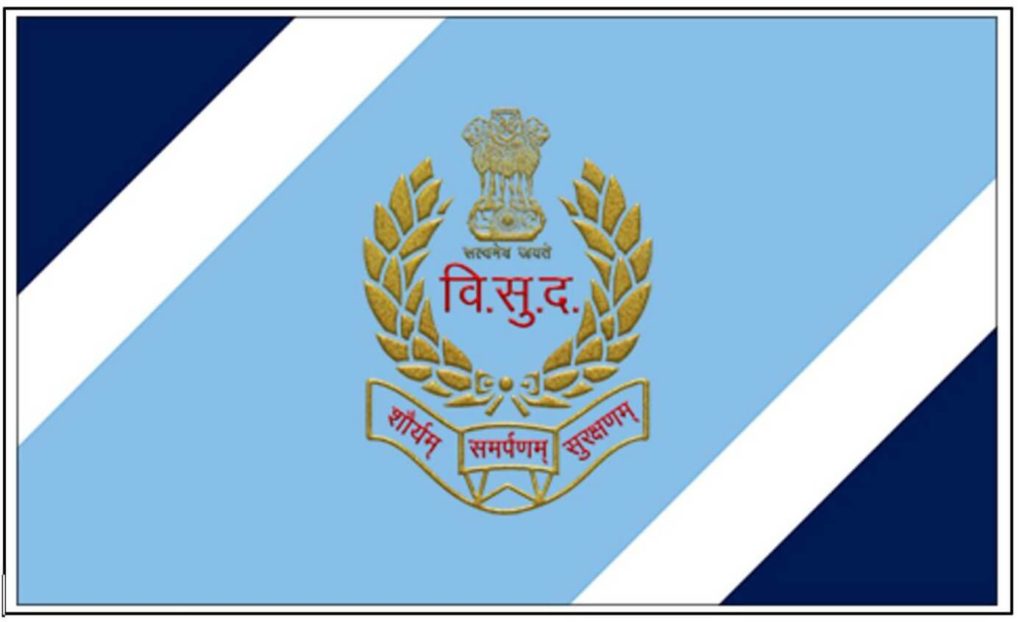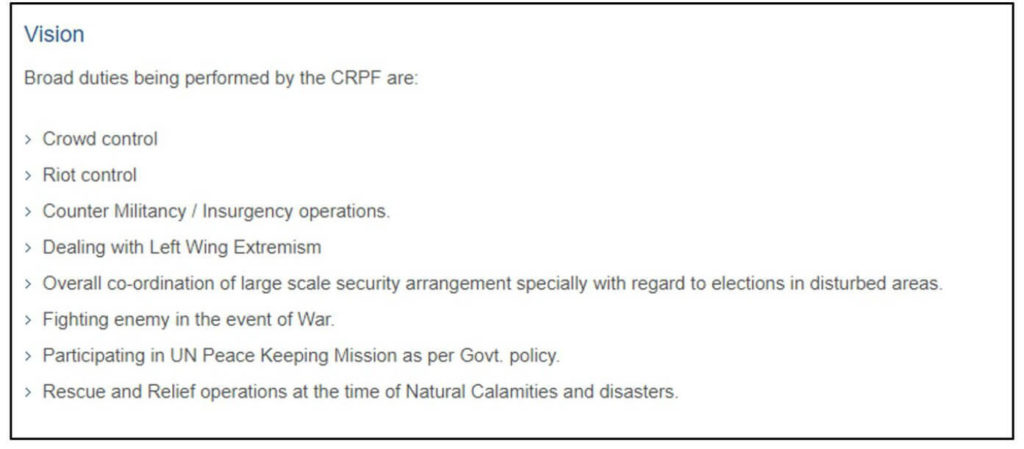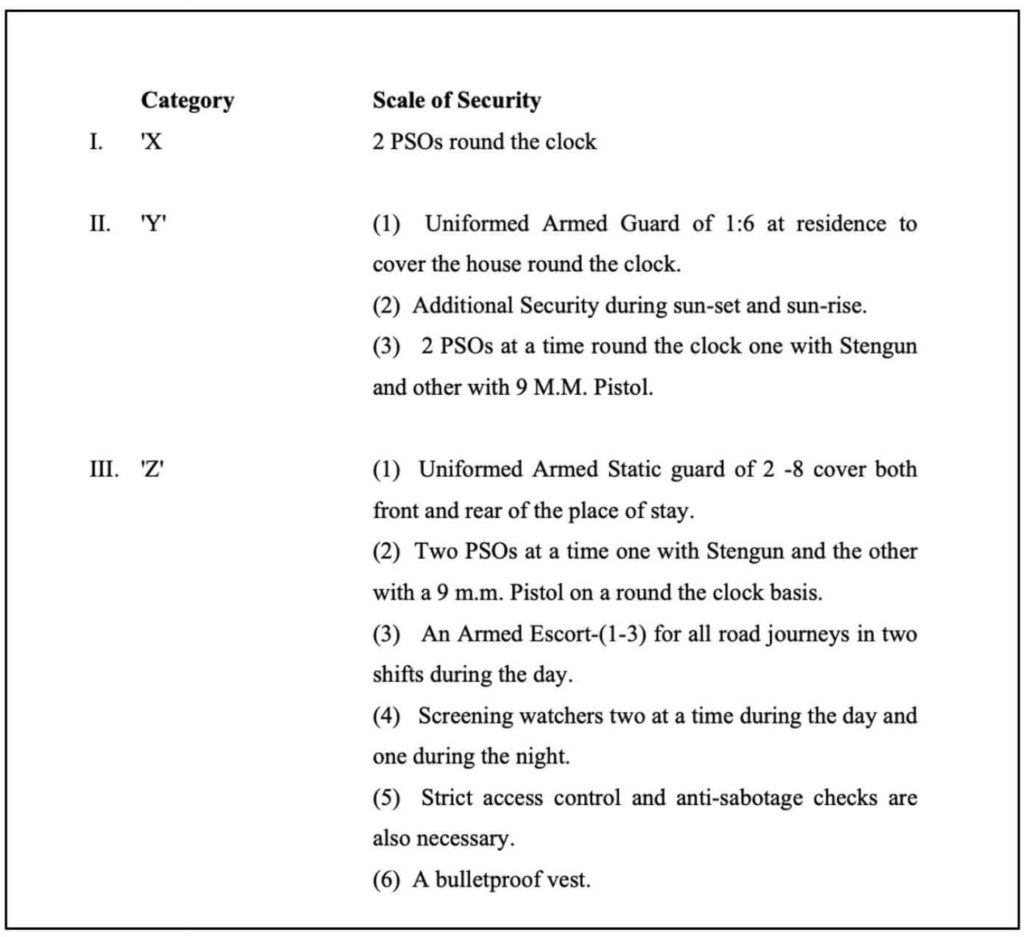X Category security cover of Sachin Tendulkar was recently withdrawn. But what are these categories and what do they mean? Here is an explainer.
Recently, in Maharashtra, X category security cover of Sachin Tendulkar was withdrawn by the newly formed Maharashtra Government. Meanwhile, Aaditya Thackeray, now a minister in the Maharashtra government and son of Chief Minister Uddhav Thackeray was upgraded to Z category from Y+. But what is X, Y+ and Z security? What are the different categories of security provided to VIPs? Who is responsible for providing security? What is the role of the police? Here is an explainer.
VVIP is an abbreviation of ‘Very Very Important Persons’, usually the President and Prime Minister of India. VIPs (‘Very Important Person’) and VVIPs may be facing threats from terrorists, militant groups or even criminal gangs. The nature of threat, however, varies depending on the individual, their position and power along with other factors. Security is also provided to Judges of the High Court and Supreme Court to facilitate decision making without any bias.
Both Central and State governments extend security to individuals based on certain criteria
Some important people may be facing threats by virtue of their position because of which security cover is provided to them by the government. The President, Prime Minister, Vice President, Union Ministers, Supreme Court Chief Justice and Judges, Speakers of Lok Sabha and other government functionaries who deal with subjects related to national security are some of them. The provision of security cover to such individuals falls under the purview of Union Home Ministry. There could be others who face threats at a local level and such people are extended security by the State governments.
Guidelines for security arrangement are laid down in Blue Book and Yellow Book
Security arrangements in case of the President, Vice President and Prime Minister are made as per the guidelines laid down in the ‘Blue Book’ issued by Home Ministry. For other individuals including political personalities, security arrangements are made on the basis of measures mentioned in the ‘Yellow Book’ titled ‘Security arrangements for the protection of individuals’ after threat assessment by security agencies.

For dignitaries including Members of Parliament, security protection on behalf of the central government is given only after threat assessment. However, state governments also have their own criteria to provide security to MPs. The provision of security to an individual other than those listed above, residing in a particular state is determined by the state government since ‘law and order’ is a state subject as per the Indian Constitution.
Every year, the government receives many requests for security cover. Based on threat assessment, it decides whether or not to provide security cover. Once a decision is taken to provide security cover, central security cover is extended or the relevant state government is requested to take necessary action.
Central security agencies conduct threat assessment on a time to time basis
Through threat assessment, nature and gravity of threat are determined on the basis of which the category of security cover is decided. The assessment is done on a periodic basis by the Central Security Agencies. The decision on whether to continue, withdraw or modify the existing security cover is based on the recommendation put forth by the security agencies.
Special Protection Group provides security to PM and immediate family
Security to Prime Minister of India and their immediate family members is governed by the Special Protection Group Act, 1988. The former PM and their immediate family members also get security cover under this act for five years from the end of their tenure. Special Protection Group or SPG was raised in 1985. Special training is imparted to SPG members to provide proximate security to PM, former PM, and their families. They also work with the Intelligence Bureau and local police force for security arrangements. Members in SPG comprise of those from the National Security Guard and Central Reserve Police Force (CRPF) personnel.

CRPF personnel are also appointed to provide security to VIPs
According to the CRPF website, about 7.5% of the CRPF personnel are deployed for providing security to VIPs mainly in the states of Jammu and Kashmir, Andhra Pradesh, Bihar and the North-Eastern states. CRPF also provides security to Union Ministers, MPs and other important people. Apart from this, CRPF is involved in protecting vital installations, dealing with Left Wing Extremism, conducting rescue operations during disasters and more.

On the other hand, the National Security Guard (NSG) is a specialized force set up to deal with specific situations and exceptional circumstances to thwart acts of terrorism.
Central government to relieve CRPF personnel from VIP protection progressively
However, the government, in 2018 stated that it will relieve CRPF personnel from VIP protection duties gradually. The duty would also be shifted to the Central Industrial Security Force and NSG. In 2019, there were reports that following a comprehensive assessment, the government relieved 1,300 security personnel from VIP duty. Security to an undisclosed number of protectees was also withdrawn by the Centre. Instead, security was asked to be provided by their respective states.
The other VIP Security categories are Z+, Z, Y and X
Apart from SPG, the other main categories of VIP security cover in India are Z+, Z, Y and X. The category of protection is determined based on threat perception and assessment. The following section looks at the role of police in providing security cover to VIPs. Special instructions are given to security under various categories when VIPs travel or attend public functions.

Level of security provided varies with each category
For those protectees with X category of security, only two ‘Personal Security Officers’ are provided. This is the lightest security level for a VIP.
The security cover provided to those protectees under Y category include an armed guard in uniform at their residence throughout the day. They are also provided with additional security during dusk and dawn. Protectees under Y category may have a PSO with a 9 mm pistol and another PSO with Sten gun throughout the day. Y+ category of security is for those facing a greater threat, serious than those with Y security.
Protectees with Z category of security are provided with bulletproof vest and car
Z category protectees are given armed static guards to cover their place of stay. The strength can vary from 2 to 8 guards depending upon the threat and place of stay. Two PSOs, similar to those under Y, are also stationed round the clock. Screening watchers, two during the daytime and one at night are appointed. Further, they are provided armed escorts for all road journeys. Strict access control to the protectee is also ensured. Safety at public events using devices such as metal detectors, bomb detectors and more will also be taken care of by the police. The protectee is also provided with a bulletproof vest.
Under Z+ category, protectees are provided with NSG mobile security. In addition to the security provided to those under Z category, the protectees in this category, if necessary, are provided with bulletproof car and escorts in three shifts. Additional security arrangements are also made depending on the location.
No Comprehensive data on the number of such protectees
Beyond these, state governments also extend security cover to individuals based on other criteria. There is no comprehensive estimate on the number of such protectees across the country. But as per the response provided by the government in March 2018, around 300 persons were being provided security in the central list.
Featured Image: Categories of Security


